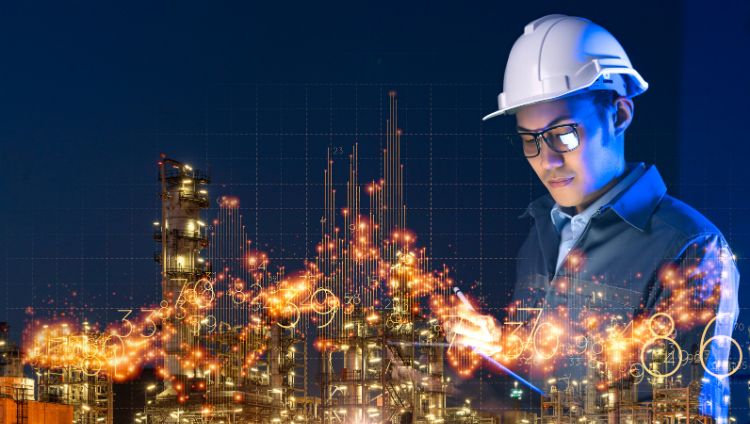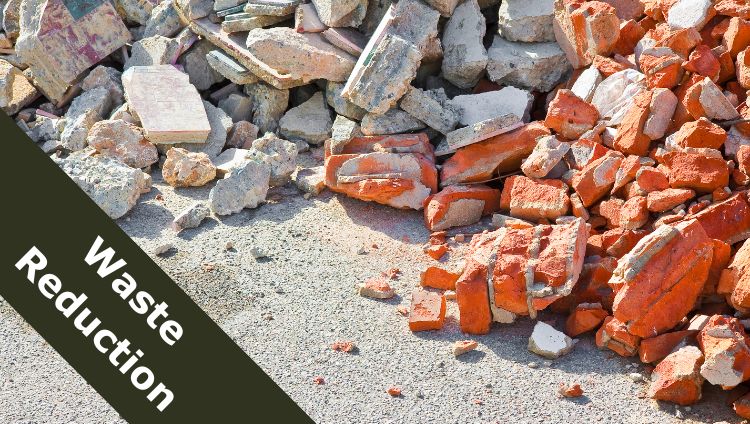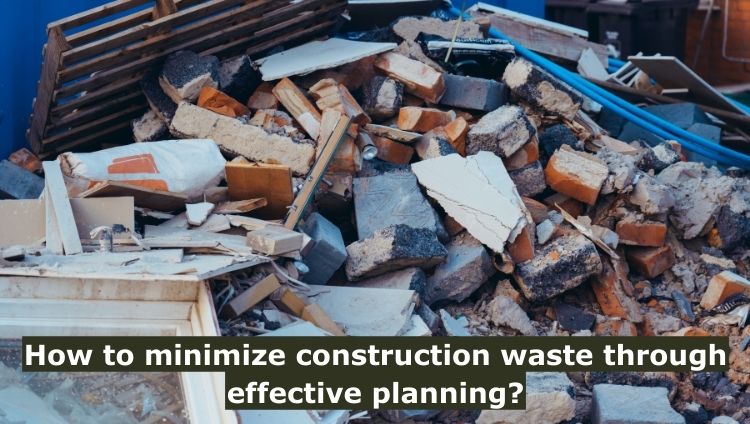Building houses, roads, and buildings is a really big job that has a huge impact on our world. However, it’s no secret that sometimes we generate far more waste than necessary in the process.
This not only harms the environment but also takes a toll on our finances. The good news is that there are simple and effective measures we can adopt to reduce waste during construction.
In this guide, we will delve into these uncomplicated methods about how to minimize construction waste through effective planning , and helping us construct with greater intelligence and sustainability while keeping more money in our pockets.
So, let’s begin this journey!
Reuse and Use Again
When we complete a project, we often find that we have leftover materials. Rather than discarding these items, we can set them aside for future projects.
This approach is beneficial for both our budget and the environment, as it reduces the need to purchase new materials.
Discusses more on the benefits of reusing materials in How to Reduce Waste in Your Daily Life .

Try Building with Ready-Made Pieces
Try making some parts of your project in a different spot and then put everything together later. It’s a great way to cut down on waste because you can take your time and be more careful without the pressure of being right at the construction site.
This concept is also explored in the article What Are the Best Ways to Maximize Space in a Dumpster Rental?.
Follow Lean Construction
Let’s dive into what lean construction really means:
Avoiding Unnecessary Steps
In lean construction, you avoid doing things just for the sake of doing them. Instead, you focus on the tasks that directly contribute to the project.
This means you skip unnecessary steps that can waste time and resources.
Using What You Need
You use exactly the right amount of materials and resources required for the job.
No more, no less. This precision means you don’t end up with leftover materials that might go to waste.
Minimizing Errors
Being careful and thoughtful helps reduce mistakes. When you make fewer mistakes, you don’t have to redo things, which saves both time and materials.
Efficient Workflow
Lean construction also means organizing your work in the most efficient way possible. Everything is well-planned, so you don’t spend time searching for tools or figuring out what to do next.
Continuous Improvement
Lean construction is fundamentally about continuously seeking ways to enhance processes.
Lean construction is all about constantly improving—finding ways to save time, cut down on waste, and use fewer resources. It’s like being a smart builder.
You focus on what really matters, only use what’s necessary, and get things done in the most efficient way possible.
This approach not only conserves time and materials but also fosters a cleaner, more organized, and environmentally friendly construction process.
Related Post: Construction Cleanup: Things You Should Know

Smart Planning with technologies
Imagine using smart technologies to plan your project even before you start building. It’s like having a magical crystal ball that shows you the future of your construction work. Here’s how it works and why it’s so awesome:

Digital Models for Better Planning
Instead of just using regular drawings and blueprints, you use computers to create super-detailed 3D models of your project. These digital models are like a sneak peek into what your building will look like when it’s done.
Spotting Problems Early
Picture having advanced digital models at your fingertips whenever you need them! These tools allow you to smoothly navigate your project and identify potential issues long before construction starts.
It’s similar to resolving challenges in a video game before they turn into real-world problems. This approach helps prevent mistakes that could result in unnecessary complications and wasted resources.
Teamwork and Sharing
Distributing these digital models to all project stakeholders—architects, contractors, and even future occupants—is straightforward. It’s similar to giving everyone the same navigation tool, minimizing the risk of confusion or errors.
For insights on utilizing technology for smarter waste management, read Innovative Technologies Being Used for Efficient Waste Disposal and Recycling.
Separate and Waste
Initially, liken it to arranging your toys into different containers. When handling project waste, prioritize sorting materials like metal, concrete, and other items into designated piles.
This simplifies the recycling process afterward, offering the opportunity to repurpose these materials rather than sending them to a landfill.
Choose Eco-Friendly Materials
When you’re picking things for your project, why not go for stuff that’s nice to the planet? It’s an easy way to make sure you’re using things that don’t harm the environment. It’s sort of like choosing snacks that are healthy instead of ones that aren’t. This not only cuts down on waste but also makes your project better for the Earth!
Explore more about sustainable material choices in What Are Green Garbage Dumpsters?
Use Energy-Efficient Machines
Consider utilizing machines that consume less energy. It’s akin to owning a vehicle that covers extensive distances with minimal fuel consumption. This practice is beneficial as it reduces environmental impact by conserving energy, and it’s financially advantageous as it lowers energy expenses, benefiting your wallet in the process.
Share the Importance of Waste Reduction
Think of it as taking on the role of an educator, highlighting to your team and others the importance of waste reduction. When everyone grasps its significance, they can work together efficiently to minimize waste. It’s akin to playing a game where everyone knows the rules, fostering seamless teamwork without any interruptions.
Learn how to implement waste reduction strategies in your community in How to Manage Waste in the Community.

Frequently Asked Questions
Why is minimizing construction waste important?
Minimize construction waste through effective planning is crucial for several reasons. When everyone knows why it matters, they can all work together to create less waste. It’s like playing a game where everyone knows the rules, so they can all play together smoothly.
How can effective planning reduce construction waste?
Effective planning involves careful consideration of material usage, efficient on-site management, waste segregation, and recycling strategies. By accurately estimating material needs, using just-in-time inventory systems, and reusing materials, waste can be significantly reduced.
What is lean construction?
Lean construction is an approach that focuses on efficiency and waste reduction. It involves avoiding unnecessary activities, using materials precisely, and minimizing errors.
Lean principles help streamline the construction process and minimize waste generation.
How do digital models help in waste reduction?
Digital models allow builders to plan and visualize projects in a three-dimensional space before construction begins. This helps identify potential issues early, reducing mistakes and waste. It also enables precise material estimation and optimization.
What are sustainable materials?
Sustainable materials are products that are produced and used in ways that have minimal negative impact on the environment.
They are often sourced responsibly, have a reduced carbon footprint, and are designed for long-lasting use.
Conclusion
Minimize construction waste through effective planning is an effective strategy that benefits everyone involved. This approach not only safeguards the environment but also preserves valuable resources and boosts business profitability.
Achieving these goals requires advanced planning techniques, digital modeling, and efficient construction practices, with a strong focus on recycling and reusing materials.
Promoting eco-friendly practices within the industry is equally important. Collaboration and knowledge-sharing among construction professionals are essential for making informed, sustainable decisions throughout the construction process.
As we work towards a more sustainable future, it’s crucial to emphasize the importance of minimizing construction waste through strategic planning and environmentally responsible practices.
For further insights into efficient waste management tactics, explore our Blog.


